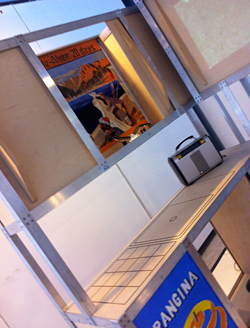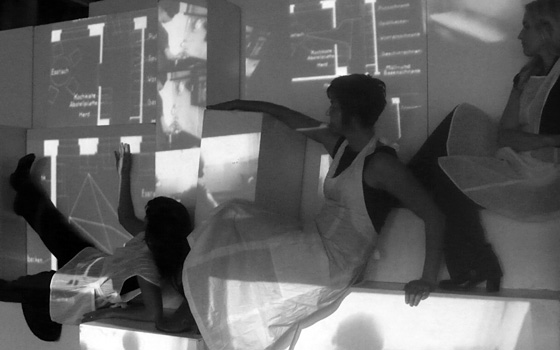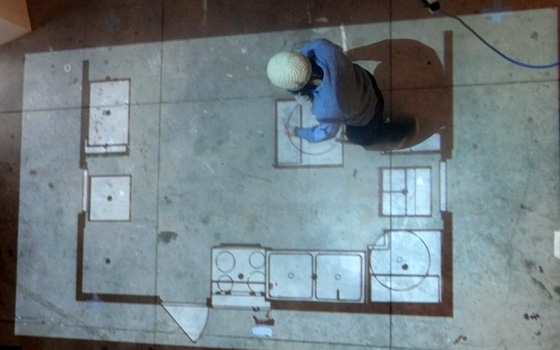A motherâs kitchen is full of smells and sights: stocked cupboards, boiling soups, chopped vegetables and a sink full of clattering dishes. Itâs a place of perspiration and inspiration.
Sarah Bonnemaison found herself inspired the moment she walked into her motherâs new-to-her kitchen in Marseille, France.
âMy mother moved into this famous building in the south of France, a Unité dâHabitation designed after the Second World War,â explains the Dal Architecture professor. âIt was a big apartment building and the kitchens are very small, but beautifully designed. She walked in and the kitchens were original; even the icebox was still there.
 âIâm an architectural historian so I thought, âI have to do something with this.â
âIâm an architectural historian so I thought, âI have to do something with this.â
What Dr. Bonnemaison developed was My Motherâs Kitchen, an interactive installation currently open to the public in Sexton Campusâ Medjuck Building. It traces the emergency of the modernist kitchen through early ergonomics and three different moments in history.
âItâs really a story of origins,â she says.
Visitors can explore a multimedia display on the Frankfurt kitchen, a modernist approach popularized in 1920s Germany and so novel at the time that it required an instructional film to support it. (Clips from the film are visible as part of the display) Then, guests can learn about the work of Mary Arnold, who helped the miners of Reserve Mines, Nova Scotia establish a housing co-op and build their own residences in whatâs known as the âTompskinsvilleâ project. The exhibit also includes an artistic recreation of Dr. Bonnemaisonâs motherâs kitchen in Marseille and an interactive digital experience where visitors can experiment with building the kitchen of the future.
The three historical kitchens were all designed by women, for women, but their values evolved over time: from efficiency, to co-operation, to quality of life.
âIâm amazed by how little we think about kitchen design, in terms of current desires for sustainability and organice produce, but at the same time, see how much money people put into it, says Dr. Bonnemaison. âI hope the exhibit gets people thinking about how the kitchen as evolved and where it might go in the future.â
This past weekend, the School of Architecture hosted Mind Into Matter, a symposium based around the exhibition and the work of its various collaborators, including Derek Reilly of the Faculty of Computer Science and faculty at NSCAD and other institutions. It included a dance performance, also called My Motherâs Kitchen, by Mocean Dance and two video projects curated by Peter Dykhuis, director of the HÂþ» Art Gallery.

âWe were all cooking together, so to speak, like a great party where youâre sharing ideas,â says Dr. Bonnemaison.
My Motherâs Kitchen runs through Sunday, May 18 in the exhibition hall of Sexton Campus' Medjuck Building (5410 Spring Garden Road). It is open daily from 10-7, except on Sunday where it will be open 10-5.


